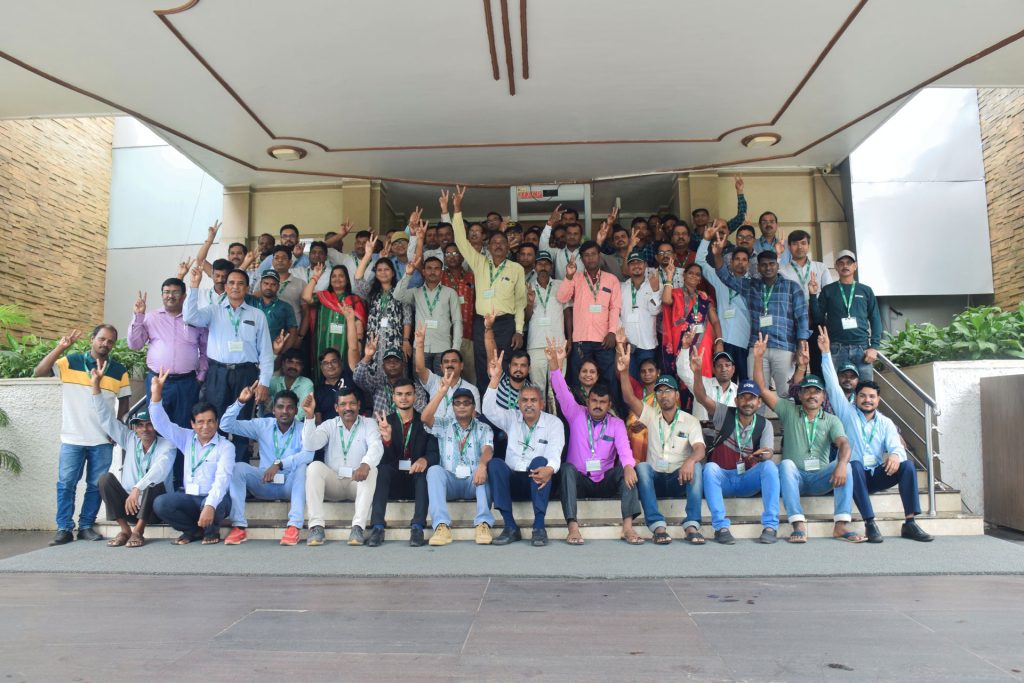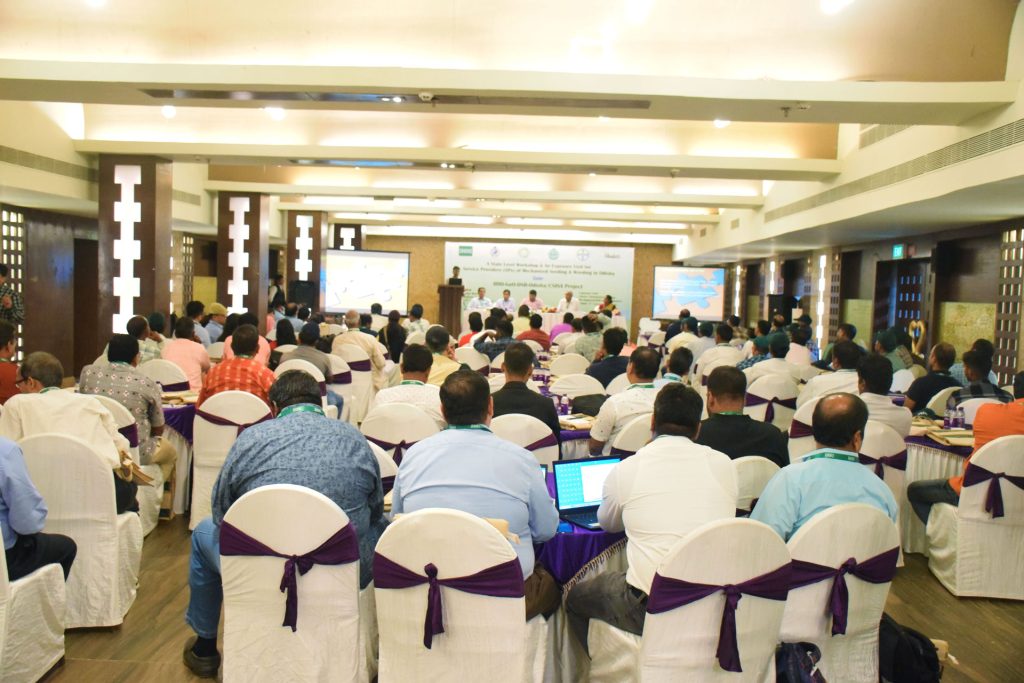Stakeholders workshop on fostering mechanized-DSR and non-rice crops advancements
In a significant collaborative effort, the Cereal Systems Initiative for South Asia (CSISA) with the DSR-Odisha Project organized a state-level workshop for service providers (SPs) in Bhubaneswar on September 15. These SPs for mechanized direct seeded rice (DSR) and mechanized weeding were also taken on a field tour to mechanized DSR clusters in the Puri district.
The workshop’s primary aim was to explore the expansion and enhancement of mechanized/precision direct-seeded rice cultivation during the kharif season and mechanized sowing of rabi pulses and oilseeds with integrated weed management (IWM). At the occasion, the stakeholders shared their valuable insights and experiences gained through demonstrations and adaptive research trials from the two rabi seasons (2021–22, 2022–23) and the kharif seasons (2022 & 2023).
A total of 122 participants representing various sectors, including the Department of Agriculture, State Agriculture University (SAU), Department of Mission Shakti, private companies, NGOs, manufacturers, dealers, service providers, lead farmers, scientists, and a few more from Bargarh, Ganjam, Kalahandi, Mayurbhanj, Puri, and Bhadrak districts of Odisha, assembled and engaged in a productive discussion.
Workshop Highlights:

“Transforming Mechanized Seeding Service Providers into Technology Advisors and Aggregators: Paving the Way for Sustainable Agriculture in Odisha.”
During this brainstorming session, current status and future opportunities on DSR and mechanized seeding of non-rice crops in Odisha was discussed. The feedback and learning on the benefits, challenges, and the potential solutions and opportunities on mechanized-DSR collected through six similar district-level workshops in the recent months were shared by participants.
The participants collectively recognized the need to develop a joint roadmap for promoting mechanized direct-seeded rice and mechanized seeding of non-rice crops layered with potential varieties and tailored agronomy, including IWM, which could serve as a basis for policy advocacy.
A logbook to capture business accounts and simple agronomic tips on different crops was also shared with the SPs. The participants also had an opportunity to visit four cluster demonstration sites on DSR in Pipilli and Delang blocks of Puri district that established the successful implementation of the technology.
Tehnical Sessions:
Dr. Ashok Kumar, Coordinator-CSISA/DSR-Odisha project; Dr. Bidhan Mohapatra, Dr. Wasim Iftikar, and Dr. NC Banik from CSISA, alon wit Er. Surayakanta Khandei from IRRI and Sri Pundarikakshudu Kurra, Director Praandhaara-Bapatla, Andhra Pradesh conducted the technical session.
Er. Muktikanta Mohapatra, Chief Engineer Agriculture, Directorate of Ariculture & Food Production Govt. of Odisha along with Chief District Agriculture Officers; Prof. Amaresh Khuntia, Joint Director Extension, Odisha University of Arigulture Technology (OUAT), along with 8-KVKs; lead DSR- farmer and SP, Malho Marandi; Mr. Dilip Baral, SP-cum-lead farmer; Mr. NK Parida, Livelihood Expert, DMS; etc. graced the occasion. This collaborative initiative holds promise for the advancement of mechanized farming practices and sustainable agriculture in Odisha.
Tags: mechanization, Odisha

